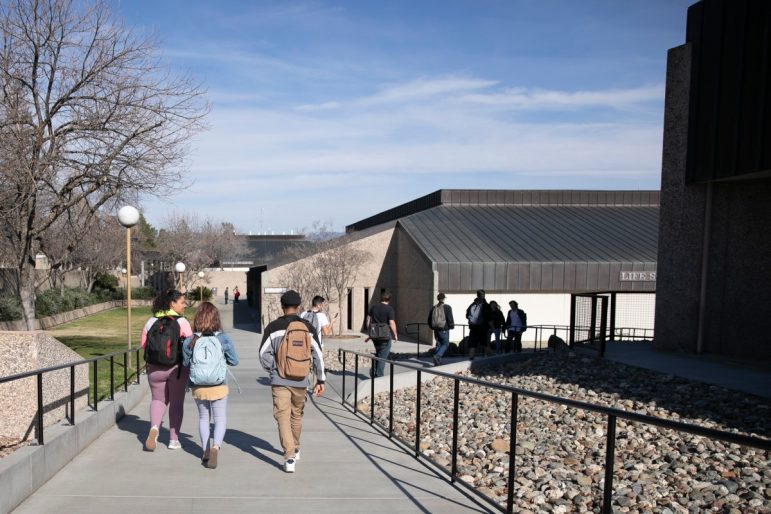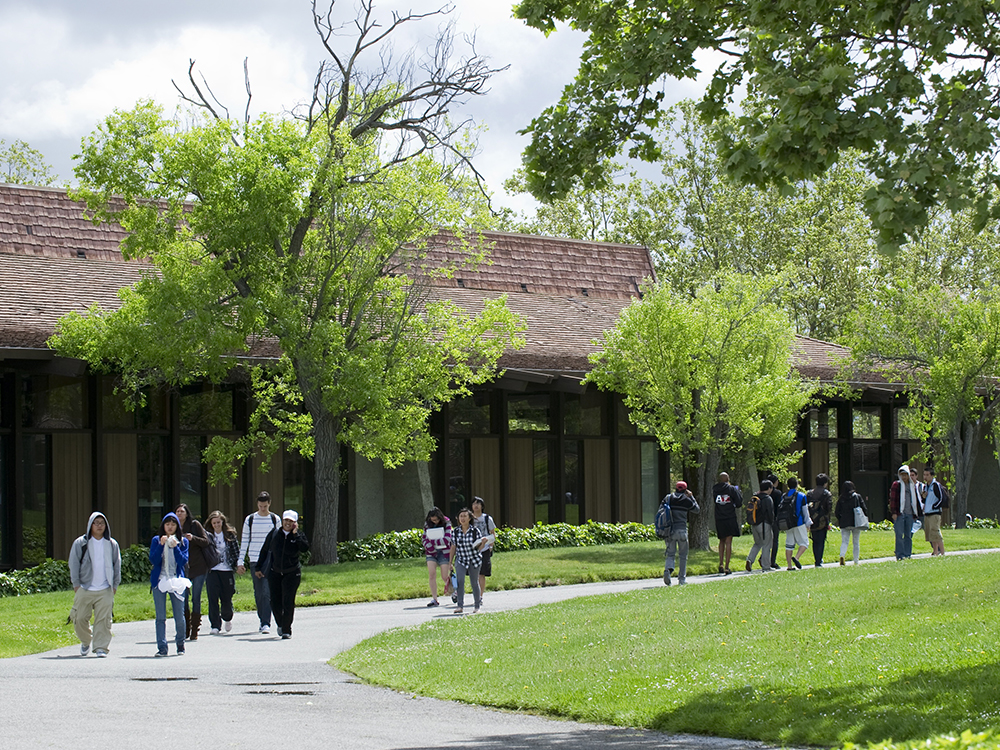Almost all of California’s community colleges are still placing at least some students into remedial math classes — and none of them can justify doing so.
That’s the finding of a new report published Monday by the California Acceleration Project, an organization advocating for the elimination of remedial classes in community colleges. The organization reviewed reports that were submitted by 114 of California’s 116 community colleges to the statewide chancellor’s office. Those reports examined the outcomes for students who were placed into remedial classes, which are courses that cannot be used for credit to transfer to a four-year university.
Under the law, colleges can only place students into remedial classes if they are more likely to complete a transfer-level class in a year than if they were to enroll directly in the transfer-level class.
The law was adopted following research revealing that students who took remedial courses rarely completed degrees or went on to transfer from community college.
According to the Acceleration Project, 93% of colleges did not meet that standard for statistics and liberal arts math classes, while 92% did not meet the standard for business programs or math-intensive programs such as science, technology and engineering.
At the rest of the colleges, remedial enrollment “appeared to meet the AB 705 standard in at least one math pathway and for at least one cohort of students,” the report stated. However, “the cohorts were too small to draw reliable conclusions” or there were other issues with the data, the report added.
The analysis also found that Black and Latino students are especially being harmed because they are not completing transfer-level classes within one year of enrolling.
At 58 colleges, Black students completed transfer-level classes at disproportionately lower rates than their peers, according to the report. The same was true for Latino students at 64 colleges.
“When colleges disproportionately steer Black and Latinx students into remedial math, it places them at a structural disadvantage, starting college a semester or more behind their peers who begin directly in a transferable, college-level course,” the report states.
California’s community colleges “have done significant work to transform local assessment and placement practices,” said Rafael Chávez, a spokesman for the chancellor’s office, in a statement to EdSource. He pointed out that 96% of students enroll directly in English transfer-level classes and 78% enroll directly in transfer-level math courses.
He said the recent data shows that when students enroll in remedial courses they are less likely to enroll in and complete transfer level courses in one year, which is the goal of the law.
Given those findings, Chávez said, each college will be expected to submit a “transition plan” this spring explaining how they will achieve full implementation by fall 2022. “Colleges will need to place students in the appropriate transfer-level or college-level course,” he said, unless there is evidence that placing them in a remedial class will benefit them.

The Acceleration Project report concludes that none of the colleges that submitted reports met the standard for offering remedial math classes under AB 705, a law passed in 2017 that says colleges cannot require students to take remedial classes unless they are deemed highly unlikely to succeed in transfer-level classes.
“We wanted to look across all of the colleges and say, could anybody meet the standard of AB 705 by putting students into remedial classes? And it was very telling that nobody could do that,” said Katie Hern, co-founder of the California Acceleration Project. Hern is an English instructor at Skyline College in San Mateo County. She founded the organization with Myra Snell, a math instructor at Los Medanos College in Contra Costa County.
Three colleges do not offer any remedial classes and are considered to be fully implementing the law: Porterville College, Pasadena City College and College of the Sequoias. California’s newest college, Madera College, did not submit a report because it just became an independent college last year. That college’s data was submitted under Reedley College, of which Madera used to be a satellite campus. California’s online-only community college, Calbright College, does not offer degrees and also did not submit a report.
There has been progress since the law went into effect in the fall of 2019. The Public Policy Institute of California found last year that, as of fall 2019, the percentage of students completing transfer-level math and English courses more than doubled since fall 2015.
In Hern’s view, remedial classes should be eliminated entirely across the community college system. “I think that the best way to ensure that students don’t end up in classes that hurt their chances in college is to not offer those classes. That’s the cleanest way to approach it.”
Under AB 705, a main alternative to remedial education has been to place students in transfer-level courses and simultaneously enroll them in what’s called a co-requisite course, where they receive extra help with their coursework.
Short of eliminating remedial classes altogether, Hern said she would also like to see changes to regulations governing the law. Hern endorsed changes that have been suggested by Public Advocates, a nonprofit law firm that often focuses on education issues. Earlier this year, the law firm petitioned the chancellor’s office to make several amendments to the regulations. Any proposed changes would need to be brought to the board that oversees the colleges.
Among the requests made by Public Advocates was to change a line in the regulation that says colleges shall not “authorize placement” of students in remedial classes. Instead, the firm asked the board to change that line to say colleges shouldn’t “authorize the enrollment” of students in those classes.
The seemingly minor change could make a big difference, according to the firm, because some students aren’t placed in remedial classes but end up enrolling in them on their own because they aren’t aware of their options. By making the change, the burden would be shifted to the colleges to make sure students are enrolling in transfer-level classes.
The chancellor’s office, however, has declined to suggest that or other amendments to the board, said Marc LeForestier, general counsel for the chancellor’s office, in a letter to the law firm last month.
“We respectfully disagree that the existing regulations are inconsistent” with state law, LeForestier wrote, “and decline to recommend these revisions to the California Community Colleges Board of Governors at this time.”
